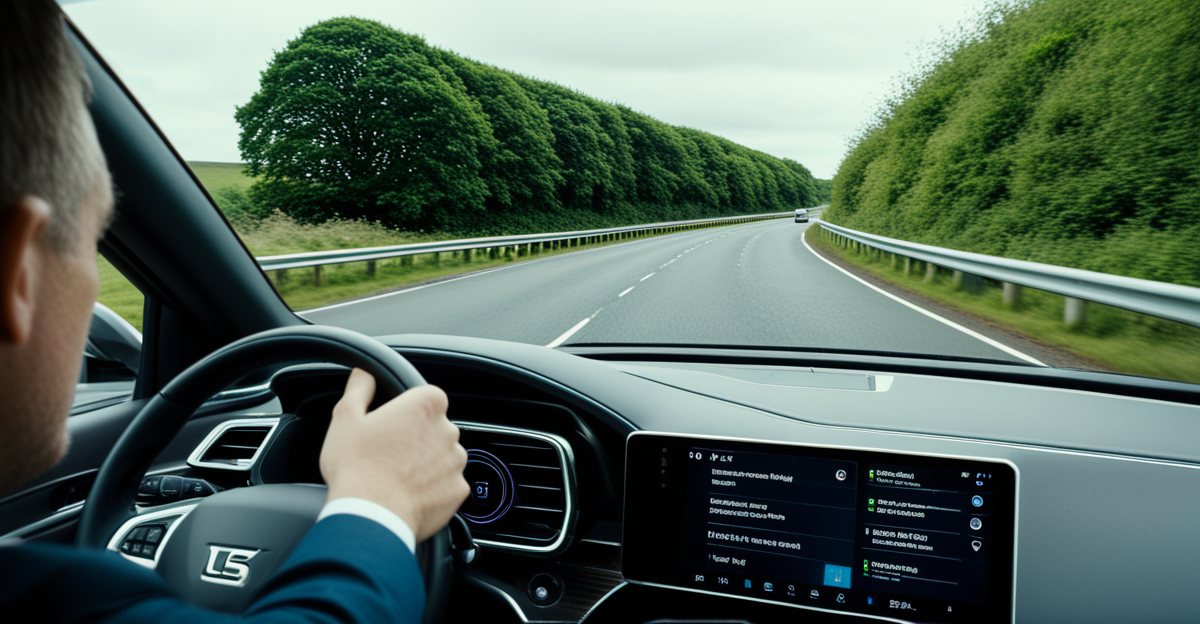UK’s Leading Role in Autonomous Vehicle Innovation
The UK autonomous vehicle technology sector stands out as a global frontrunner, bolstered by cutting-edge advancements and a dynamic ecosystem. British innovations in self-driving cars are driven by a blend of established corporations and agile startups, all pushing the envelope in autonomous transport. This synergy fosters both foundational research and practical deployment solutions.
Key players include major UK companies that focus on integrating sophisticated autonomous systems into their vehicles, alongside startups specializing in niche areas such as sensor technology and AI-driven perception. Their efforts are supported and amplified by prominent research institutions and universities, renowned for pioneering developments in machine learning algorithms, sensor fusion, and real-time data processing. For example, top UK universities contribute deep expertise in robotics and computer vision, creating a steady pipeline of innovations for practical use.
Topic to read : What Are the Implications of UK Technological Advances for Global Competition?
Highlighted UK-led projects demonstrate the tangible impacts of these investments. From autonomous shuttles operating in city centres to advanced driver-assistance systems tested on public roads, the UK’s contributions to autonomous transport show how theory translates into real-world application. This robust collaboration between industry and academia underlines the UK’s critical role in shaping the future of autonomous vehicles.
Collectively, these factors illustrate how British innovations in self-driving cars and the broader autonomous vehicle technology have cemented the UK’s position as a key innovator in the autonomous transport domain.
In the same genre : What impact does UK technology have on cybersecurity innovation?
Strategic Partnerships and Collaborations
Strategic UK automotive partnerships form a cornerstone of the nation’s strength in autonomous vehicle innovation. These partnerships bring together expertise from diverse sectors, enhancing the development and deployment of autonomous technologies. Notably, UK companies frequently collaborate with global manufacturers to integrate bespoke autonomous systems into existing vehicle platforms, ensuring seamless compatibility and accelerating market readiness.
Among the prominent collaborations are alliances between UK startups and international automotive giants, pairing innovative agility with manufacturing scale. These joint ventures facilitate the rapid testing and refinement of UK contributions to autonomous transport. For example, cooperative projects often focus on sensor integration, AI-driven decision-making, and connectivity solutions that are vital for safe and reliable self-driving cars.
Academic institutions and technology firms also play a crucial role in these partnerships. Universities provide cutting-edge research, while tech companies contribute practical applications and software expertise. This synergy helps British innovations in self-driving cars transition from theory to demonstrable results, witnessed in various pilot projects around the UK and abroad.
Successful case studies demonstrate clear benefits from these collaborations. One such example includes a UK car manufacturer’s alliance with international tech partners, resulting in enhanced autonomous navigation systems tested on diverse terrains. These cooperative efforts not only advance UK autonomous vehicle technology but also reinforce the UK’s reputation as a hub for collaborative innovation on the global stage.
Government Initiatives and Industry Support
The UK government autonomous vehicle policies form a vital foundation for advancing the UK autonomous vehicle technology sector. These policies establish clear regulatory frameworks that enable safe and efficient testing of self-driving cars on public roads. For example, the UK has implemented pragmatic legislation allowing autonomous vehicle trials under controlled conditions, which reduces barriers for innovators and accelerates development timelines.
Public funding plays a pivotal role as well. Substantial investments through government grants and innovation programmes provide crucial financial support to both startups and established companies pursuing British innovations in self-driving cars. This support not only increases research capacity but also encourages collaboration between academia and industry, further enhancing UK contributions to autonomous transport.
Incentives designed to promote self-driving innovation extend beyond funding. The government also offers streamlined approval processes and pilot project facilitation schemes, making it easier for developers to test and demonstrate autonomous vehicle technologies. These initiatives directly impact the pace at which autonomous vehicles can move from concept to road-ready solutions.
National strategies articulated by the UK government emphasize the integration of autonomous vehicles into broader transport infrastructure. This strategic vision supports ecosystem growth, encompassing everything from technological development to deployment readiness. Collectively, these regulatory and financial measures empower the UK to maintain its leadership role in autonomous transport innovation.
Technological Breakthroughs Shaping Autonomous Driving
British automotive technology plays a pivotal role in advancing the capabilities of autonomous vehicles through cutting-edge innovations primarily in AI, sensors, and software systems. The integration of sophisticated AI in UK self-driving cars enables real-time decision-making and enhanced perception, which are critical for navigating complex traffic environments. These AI systems leverage advanced machine learning algorithms developed at UK universities and research centres, allowing autonomous vehicles to improve accuracy and safety continuously.
In sensor technology, the UK leads with innovations in LiDAR, radar, and camera systems that provide comprehensive environmental awareness. UK-based sensor advancements focus on increased detection range and resolution, improving a vehicle’s ability to identify obstacles, pedestrians, and road conditions promptly. Additionally, the UK has been at the forefront of vehicle-to-everything (V2X) communication technologies, which facilitate seamless connectivity between autonomous vehicles and infrastructure, other vehicles, and cloud-based services. This connectivity is essential for coordinated traffic flow and enhanced safety protocols.
Practical impacts from these British-developed systems are evident in various pilot projects and trials across the UK. For example, autonomous shuttles equipped with UK-designed AI and sensor packages have demonstrated reliable operation in urban settings, validating British innovations in self-driving cars. These pilots provide valuable data that refine algorithms and sensor integration, further advancing UK autonomous vehicle technology. Such breakthroughs solidify the UK’s influence on the autonomous driving landscape with scalable, real-world applications.
UK’s Leading Role in Autonomous Vehicle Innovation
British innovations in self-driving cars thrive through the active involvement of both major UK companies and agile startups, creating a diverse and vibrant ecosystem. Leading corporations focus on integrating comprehensive autonomous systems into vehicles, prioritizing safety and scalability. Meanwhile, startups often specialize in cutting-edge subfields such as sensor precision, AI-driven perception, and software algorithms. This dual approach ensures broad coverage of the autonomous vehicle technology spectrum.
Key research institutions and universities remain central to UK contributions to autonomous transport. These academic bodies drive foundational advances in machine learning, robotics, and sensor fusion. Their collaboration with industry partners facilitates rapid translation from theory into practical applications. For instance, universities contribute sophisticated AI models that improve self-driving cars’ real-time decision-making and environmental understanding.
Highlighted UK-led projects offer tangible proof of the sector’s success. Autonomous shuttles running in urban areas demonstrate how British innovations in self-driving cars meet real-world challenges, including navigating complex traffic environments and unpredictable pedestrian movements. Other projects focus on advanced driver-assistance technologies tested across diverse road conditions, showcasing comprehensive UK autonomous vehicle technology capabilities in action. Together, these examples underline the UK’s leadership and sustained impact on global autonomous driving advancements.




